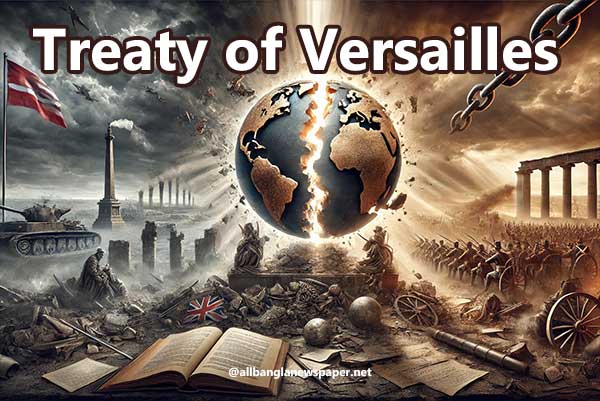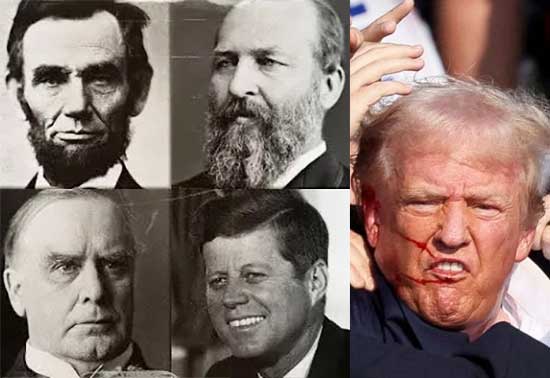
The Treaty of Versailles, signed in 1919, is a pivotal agreement in modern history, officially concluding World War I. Beyond marking the end of a devastating global conflict, this treaty profoundly influenced the geopolitical and economic landscape for decades. Its terms imposed harsh reparations on Germany, redrew international borders, and fueled nationalist sentiments that sowed the seeds for World War II. The treaty also led to the creation of the League of Nations, an ambitious attempt at fostering global peace, though it faced limitations. Its repercussions extended far beyond Europe, influencing colonial territories and sparking independence movements worldwide. From economic upheaval to long-lasting cultural shifts, the Treaty of Versailles is a stark reminder of how peace agreements can shape history. Here, we explore seven surprising ways this landmark treaty continues to impact our world.
The Treaty of Versailles and the Rise of Nationalism
The Treaty of Versailles, signed in 1919, significantly altered Germany's trajectory, catalysing the rise of nationalism that reshaped world history. The treaty's punitive terms, including severe territorial losses, mandatory disarmament, and exorbitant reparations, left Germany economically devastated and politically humiliated. These conditions bred widespread resentment among Germans, fostering a collective sense of injustice and betrayal.
This environment of despair and outrage created the perfect conditions for the emergence of extremist ideologies, with Adolf Hitler and the Nazi Party capitalizing on these sentiments. Hitler's rhetoric promised a return to national pride and strength, directly challenging the treaty's restrictions. This powerful nationalist wave fueled Germany's drive to overturn the treaty, reclaim lost territories, and rebuild its military might.
Historians point to this nationalist fervor as a critical factor in explaining how the Treaty of Versailles led to WW2. The harsh penalties destabilised Germany and left Europe vulnerable to future conflicts. By fostering resentment and emboldening authoritarian leadership, the Treaty of Versailles inadvertently set the stage for World War II, making it a stark lesson in the complexities of peace agreements and their unintended consequences.
Economic Turmoil and Global Consequences
The Treaty of Versailles imposed severe economic penalties on Germany, saddling the nation with reparations totalling 132 billion gold marks. This crushing debt devastated Germany's economy, leading to hyperinflation, mass unemployment, and widespread poverty. The economic chaos left the German population disillusioned and resentful, further destabilizing the nation's political landscape.
The treaty’s financial strain extended beyond Germany, as other European nations, weakened by World War I, struggled to recover while upholding fragile alliances. These interconnected economic challenges contributed to a domino effect, culminating in the Great Depression. This global crisis underscored the treaty's shortsightedness, as its focus on punitive reparations over economic stability hindered collective recovery efforts.
The economic turmoil sparked by the Treaty of Versailles shaped Germany's future and exposed the profound and far-reaching consequences of imposing excessively harsh penalties on a defeated nation.
The Redrawing of Borders
The Treaty of Versailles brought about significant changes in global geography, with the redrawing of borders being one of its most impactful outcomes. The treaty sought to recalibrate the balance of power by reshaping territories, leading to profound political and social consequences.
New nations, including Poland, Czechoslovakia, and Yugoslavia, emerged from the fragments of larger empires. Germany was forced to cede Alsace-Lorraine to France, while the Austro-Hungarian Empire was dismantled into smaller, independent states. These changes aimed to stabilize Europe and address the aspirations of various ethnic groups.
However, the territorial adjustments often created as many problems as they resolved. Newly formed nations grappled with ethnic tensions, while displaced populations and contested borders sowed seeds of discord. In some cases, these disputes evolved into long-term conflicts, with the echoes of these divisions still felt in modern geopolitics.
The redrawing of borders under the Treaty of Versailles remains a stark reminder of how peace agreements can unintentionally shape future instability.
The Creation of the League of Nations
The Treaty of Versailles established the League of Nations, an ambitious initiative to foster global peace and prevent future wars. As the first international organization, the League marked a bold step toward diplomacy and cooperation.
However, significant challenges undermined its potential. Major powers like the United States chose not to join, and several member nations withdrew over time, weakening its influence. The League's inability to enforce decisions or respond effectively to emerging threats, such as aggressive expansion by Axis powers, highlighted its limitations.
Despite its shortcomings and eventual failure to prevent World War II, the League of Nations set an important precedent. Its vision and framework paved the way for creating the United Nations, which would carry forward its mission with broader global support and stronger mechanisms.
How the Treaty Shaped WW2 Alliances
The Treaty of Versailles, designed to ensure lasting peace after World War I, ironically catalysed the alliances that defined World War II. By imposing harsh penalties on Germany, including economic reparations, territorial losses, and military restrictions, the treaty created widespread resentment and dissatisfaction. These punitive measures left Germany humiliated and economically weakened, fostering a determination to reclaim its former power.
This discontent extended beyond Germany, influencing other nations with shared grievances. Disillusioned by unfulfilled territorial promises, Italy and Japan, seeking greater global influence, found common ground with Germany. These nations formed the Axis powers, united by mutual ambitions to overturn the treaty's constraints and challenge the status quo.
The alliances forged after the Treaty of Versailles underscored its failure to build lasting peace, instead setting the stage for the devastating conflict of World War II.
Colonial Repercussions and Decolonization Movements
The Treaty of Versailles had far-reaching impacts beyond Europe, significantly influencing colonial territories worldwide. Under the treaty, German colonies were redistributed among the Allied powers through the mandate system, which aimed to govern these territories under the guise of preparing them for self-rule. However, this redistribution often ignored the aspirations of the colonized populations, fueling widespread discontent.
In regions like Asia, Africa, and the Middle East, the treaty's provisions were seen as a betrayal of promises made during World War I. Countries such as India and Vietnam, which had contributed to the Allied war effort, expected progress toward independence but were instead met with continued colonial domination.
This sense of betrayal galvanized nationalist movements, accelerating demands for self-determination and independence. The Treaty of Versailles catalysed the decolonization movements that reshaped global geopolitics in the 20th century by inadvertently stoking anti-colonial sentiments.
Enduring Cultural and Historical Legacy
The Treaty of Versailles remains a focal point of historical debate, offering valuable lessons about peace agreements' complexities and unintended consequences. Historians, political analysts, and educators continue to examine its far-reaching impacts, from economic turmoil to the geopolitical shifts it catalyzed. Its legacy highlights the delicate balance required in crafting agreements that seek to prevent future conflicts while addressing the grievances of the present.
This cultural and historical legacy extends beyond its immediate effects, influencing global diplomacy and conflict resolution discussions. Interestingly, seemingly unrelated events, such as "5 Surprising Facts About the Aswan Dam," can be compared, which also underscores how large-scale political decisions can have unexpected and far-reaching consequences.
The Treaty of Versailles serves as a lasting reminder of the profound influence of international agreements, shaping the nations involved and the broader course of history.
#TreatyOfVersailles #TreatyOfVersaillesTerms #TreatyOfVersaillesSummary





